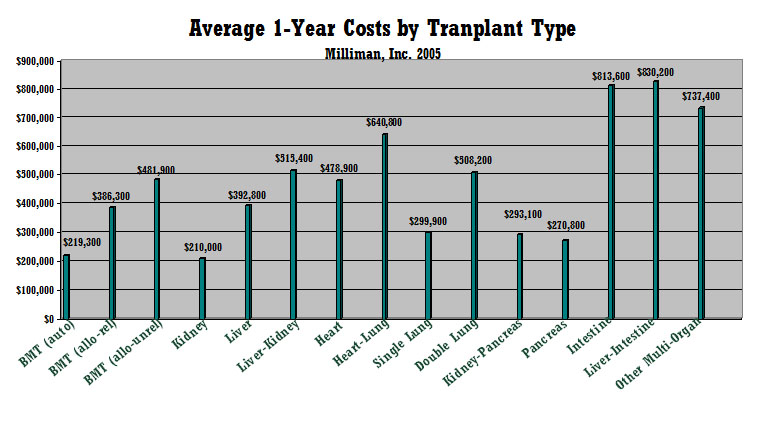Selecting a Network The most important consideration when choosing a transplant network should always be the quality of care delivered. A secondary but important consideration is the cost effectiveness of the network. A network that charges access fees but has greater net savings overall due to more favorable negotiated arrangements with network facilities is preferable to a transplant network that charges no access fees but has less effective contracts.
New Program
Summit Re recently conducted a thorough assessment of three transplant networks. (See table on page 3.) As a result of that assessment, we concluded that United Resource Networks (U.R.N.) provided the best overall value. Therefore, we agreed to enter into an exclusive arrangement with U.R.N. for the provision of transplant services for our clients. We have been able to negotiate lower access fees because of this exclusive relationship.
Access Fees
Under the new program, our clients will have their access fees for each transplant reduced by 5% due to Summit Re’s exclusivity with U.R.N. An additional 5% reduction can be realized if clients incorporate certain benefit incentives into their plan designs for the use of U.R.N. facilities and use them exclusively. A third discount is based on Summit Re’s total volume of business with U.R.N.
Make the Change
This program replaces the previous benefit that Summit Re had negotiated with U.R.N. – namely, a waiver of the 35%-of-savings fee U.R.N. normally charges for cases that access U.R.N. facilities but do not result in transplantation. The current program is still available to existing Summit Re clients who access U.R.N., but we recommend the new program. Summit Re will contact current clients to discuss the program in greater detail.
Access Fee Discount |
Source |
| 5% discount | Summit Re’s exclusive marketing of U.R.N. for transplant services |
| 5% discount | Client’s exclusivity agreement and benefit differentials |
| Up to 10% | Summit Re’s total volume of business with U.R.N.* |
Total Discount: Up to 20% |
|
*This portion of the discounts will be calculated retrospectively by U.R.N. on an annual basis. The discount is available to clients who have reinsurance coverage through Summit Re that is in effect on the date of the payment to Summit Re.



